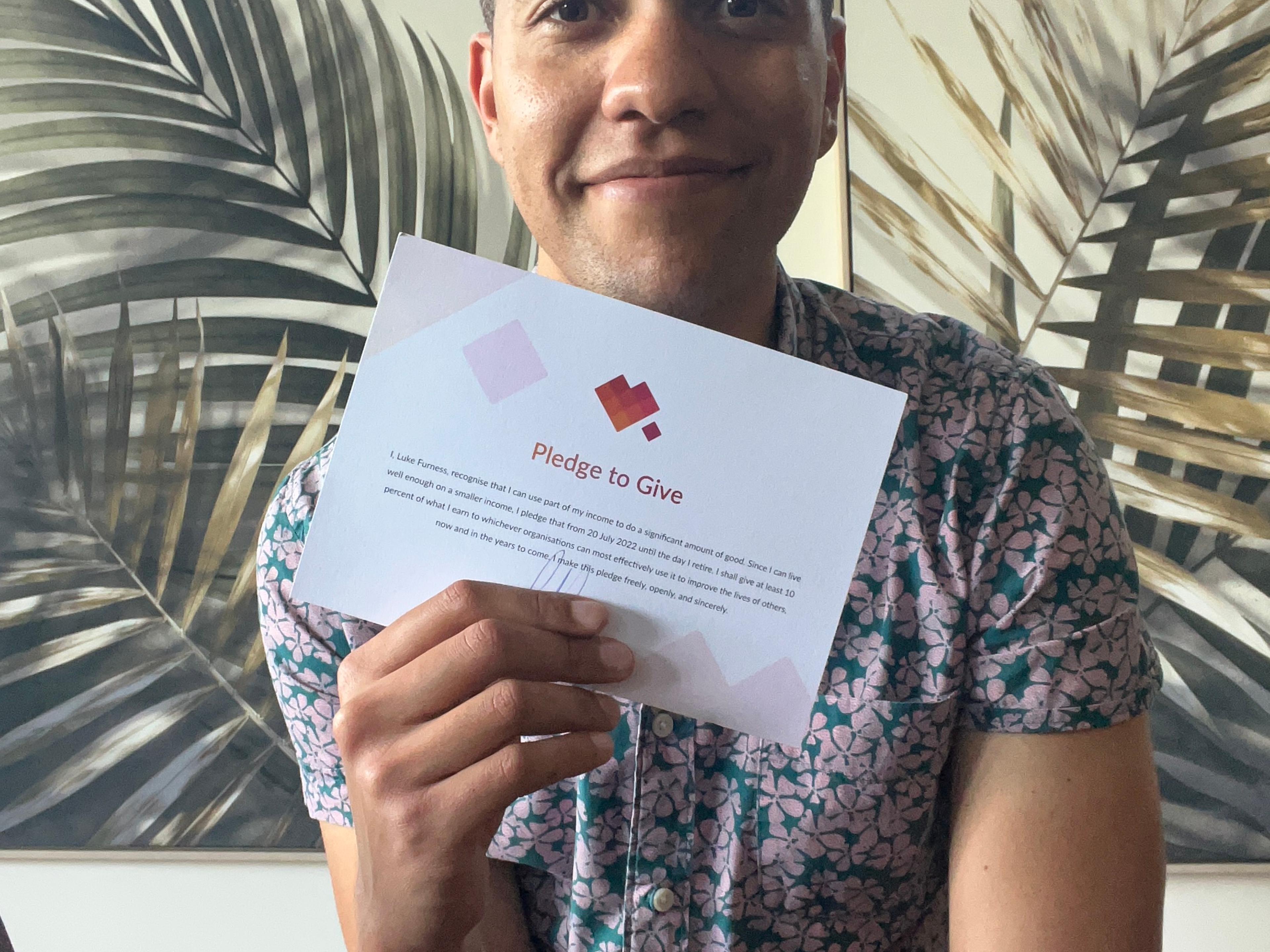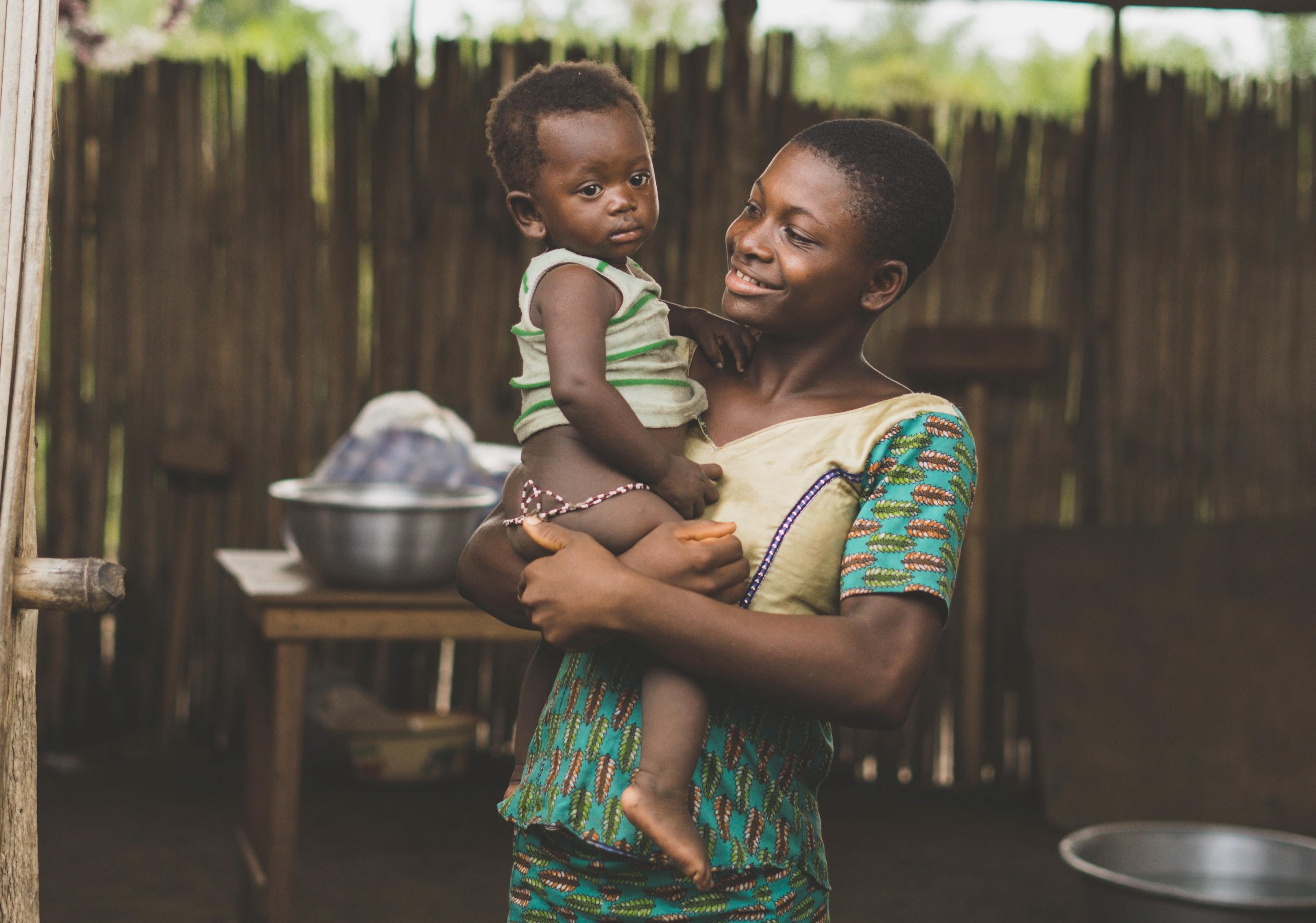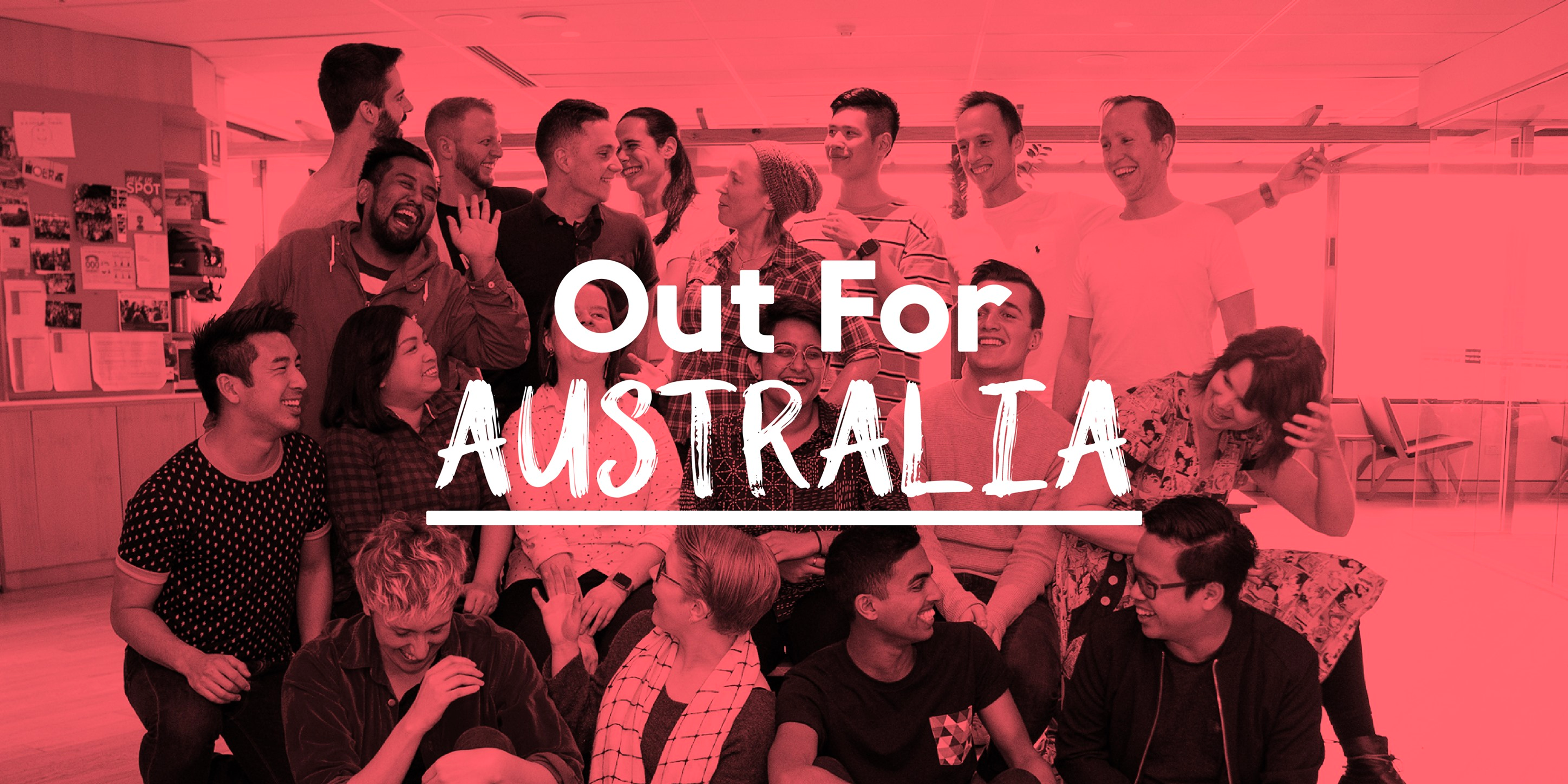This profile is part of the "People of Giving What We Can" series.
We recently spoke with Luke Furness, an Australian lawyer who started his effective giving journey after picking up a book during COVID lockdowns. He also was the previous CEO of Out for Australia, a national LGBTI+ student mentoring non-profit, and currently volunteers at his local community kitchen.

Tell us about yourself. What keeps you busy and what makes you tick?
Day-to-day, I'm a lawyer at a major Australian law firm. I love dancing (hip hop please), bird watching, having friends round for dinner, and reading books (particularly moral philosophy).
I drifted into law on autopilot because I got the grades in school, because I was good at debating, and because it seemed prestigious and secure. It turns out I really like it (the intellectual challenge, the strategy, and working with some super smart people), but I only discovered that much later.
I've kind of always been a joiner and wanted to do "extracurriculars". I had leadership roles in quite a few university societies and so was keen to contribute in my working life too. I also kind of stumbled into Out for Australia, an Australian nonprofit, too. I found them before LGBTI inclusion initiatives had really taken off and was keen to see more of them in my own home town of Brisbane, Australia. I was attracted to the idea of supporting LGBTI students transition into the workplace because I wasn't out when I first started at my law firm. I started as the Queensland director and then got the chance to apply for the CEO position which was my first leadership position in a non-profit and something I'm really proud of.
Tell us about your effective giving journey.
It all started in COVID when it felt like the world was falling apart and I did a lot of thinking about what there was to live for. I stumbled into a bookstore on the Sunshine Coast and picked up a book on a whim - Hugh Mackay's The Good Life. The bookshop owner said "you'll enjoy that," and I did. It was the first book that showed me that a good life is a life lived for others and I've been looking at ways to make an impact ever since. The book taught me a few things:
First, that happiness is a fleeting emotion. While happiness is a great thing, having your own, personal happiness as a life goal seems difficult and unfulfilling. Second, that living a good life must mean a life lived for others, even if you don't know them or even particularly like them. Third, that most people discover that way too late in life and spend too much time barking up a succession of wrong trees. Why not start right now?
Why do you give?
I think I was sold by the logic of effective altruism. It seemed right that if I can give up a little to prevent a lot of suffering, then I probably should. I also thought that it was a bit of a cop out to expect the billionaires to do all the giving. There are many of us living comfortable, middle-class lives in western countries, but that have some resources to spare.
I was very apprehensive at first about donating even 1%. I remember (embarrassingly) feeling like I was a sucker for giving away "so much" to people I'd never meet when I didn't know anyone who did the same. Now, I give 10% and barely notice, which proves just how lucky I am and how I should have been doing this for years.
Why did you take the Giving What We Can pledge?
To keep myself committed. I liked the idea for a life-long commitment, particularly as I got married this year too!
What are the issues in the world that you care most deeply about?
Ending extreme poverty. It just seems such an obvious proposition that there are still people in extreme need of financial assistance to have a chance at a quality life. There are a lot of causes that we don't know whether they help or not, but I was convinced by the research from organisations like GiveWell that there are effective ways to get the money and supplies to those that need it.

Which organisations do you give to (and why)?
Effective Altruism Australia. I just let them do the split. I figure if I agree with the logic of effective altruism, I can leave it to the experts to work out the best way to use my money.
Do you ever find it difficult to give?
At the start, yes. Not anymore. It actually gives me great contentment now to know that I'm giving back.
Do you have any examples of times where you decided to not spend money on something your peers would have?
I live far more modestly than I once did. I remember being in Florence when I was 19 and buying a pair of EUR 360 shoes! That's embarrassing to me now. My last pair of shoes came from K Mart.
Do you try to effect change in any other way?
I've volunteered across several LGBTI+ organisations and was the CEO of Out for Australia, a national LGBTI+ student mentoring non-profit. I also volunteer at my local community kitchen. Despite a strong belief in effective altruism's internationalism, I still find myself drawn to poverty alleviation in my own city.

What suggestions do you have for other people considering the pledge?
Just start by giving a really small amount. It could be the 1% trial pledge or even something less. Then increase it over time like I did. Once inspiration strikes, set up a recurring transfer. Once that's set up, it's "set and forget" and if you're lucky like me, you won't even notice it's gone.
Have any books or documentaries or articles or studies significantly changed the way you see giving?
- The Good Life by Hugh Mackay
- The Second Mountain by David Brooks
- How Are We to Live? by Peter Singer
- Religion for Atheists by Alain de Botton
Have you found anything to be helpful in talking to people about effective giving?
Just talk about what you're doing and how it gives you joy. Don't couch it as things that they should be doing. Be empathetic to responses like "I can't give that much because..." People don't like being told what to do.
Are there any other concrete ways that Giving What We Can has helped you?
I think that there is a warm glow you get from knowing that there are whole organisations out there dedicated to helping people find the answers to living a good life and giving out things, like the pledge certificate, for free. It's cause for great optimism.